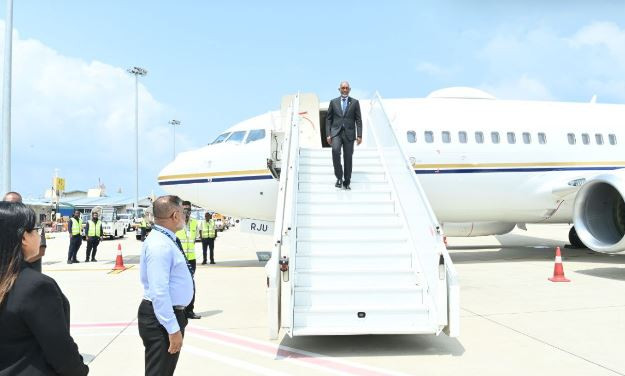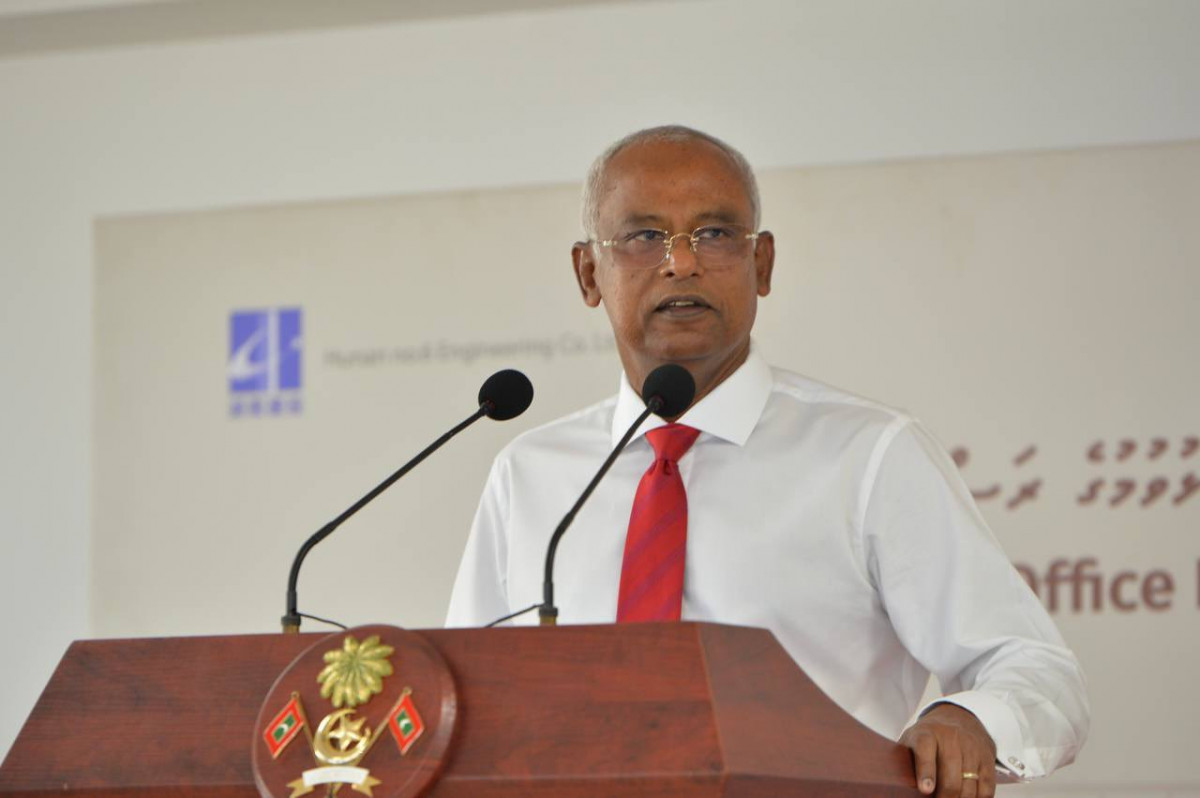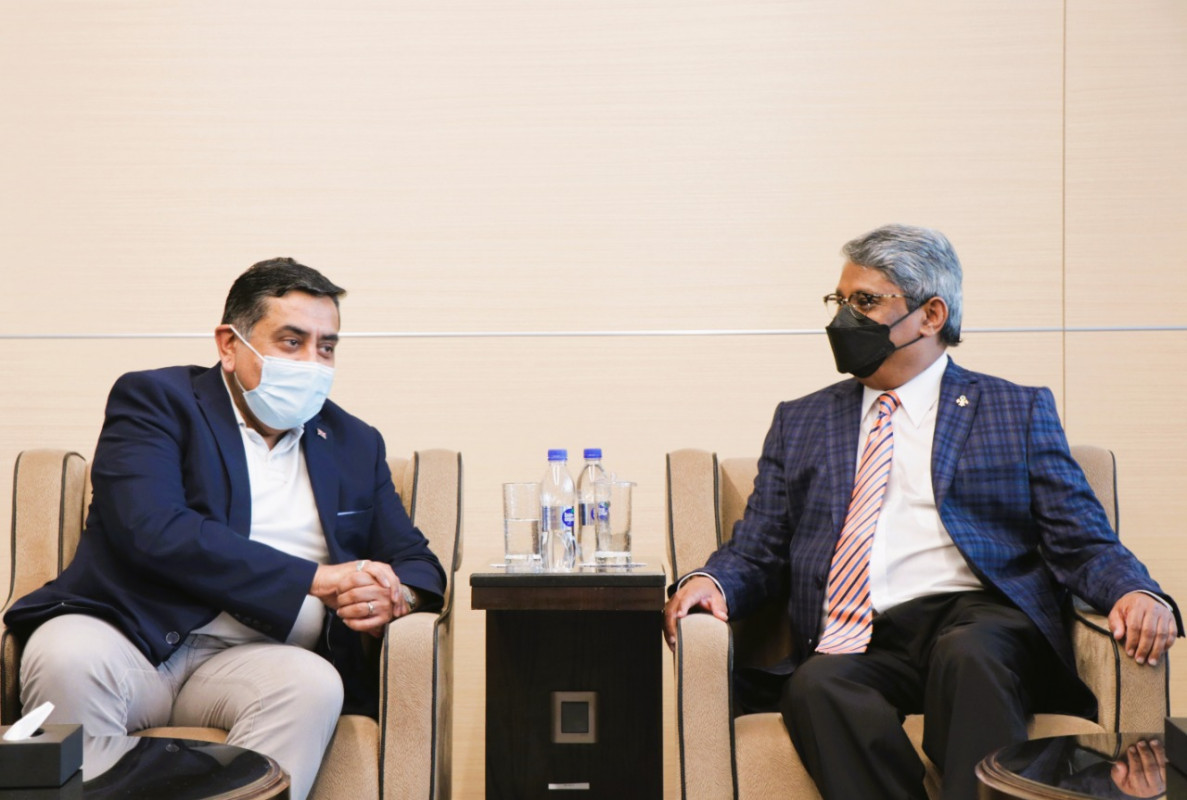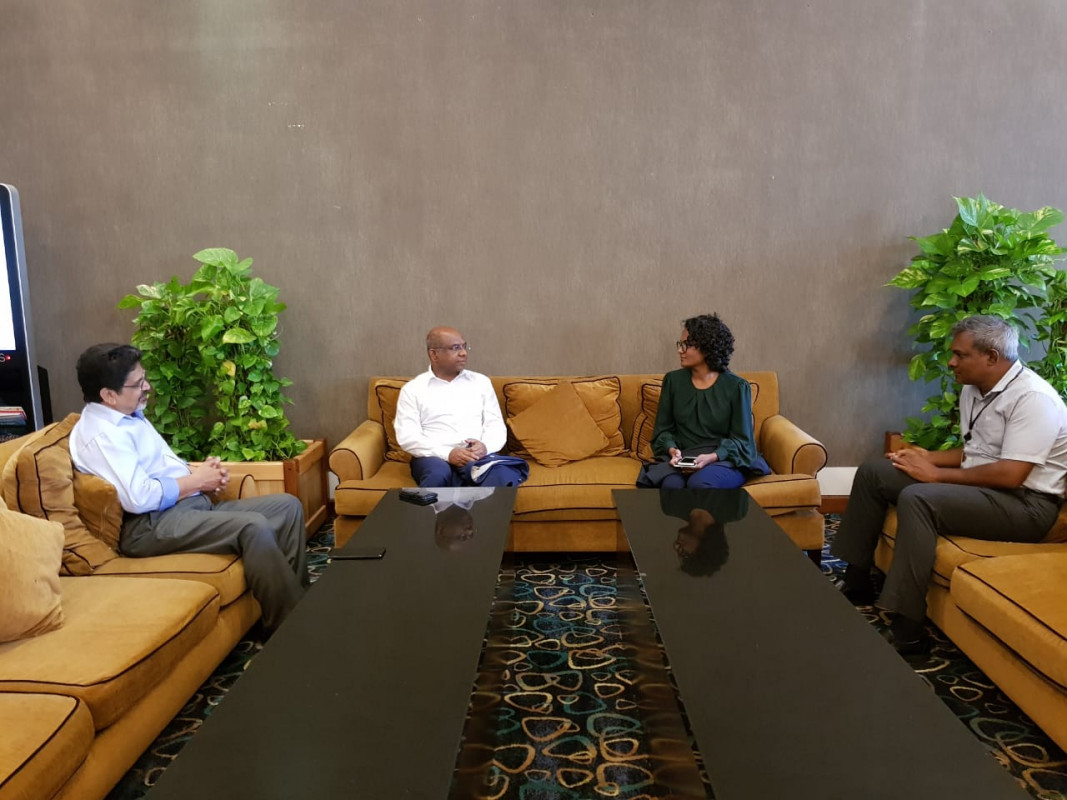Multilateralism is important in addressing global challenges: Minister Shahid
Minister Shahid recounted Maldives' first efforts to address the issue of climate change

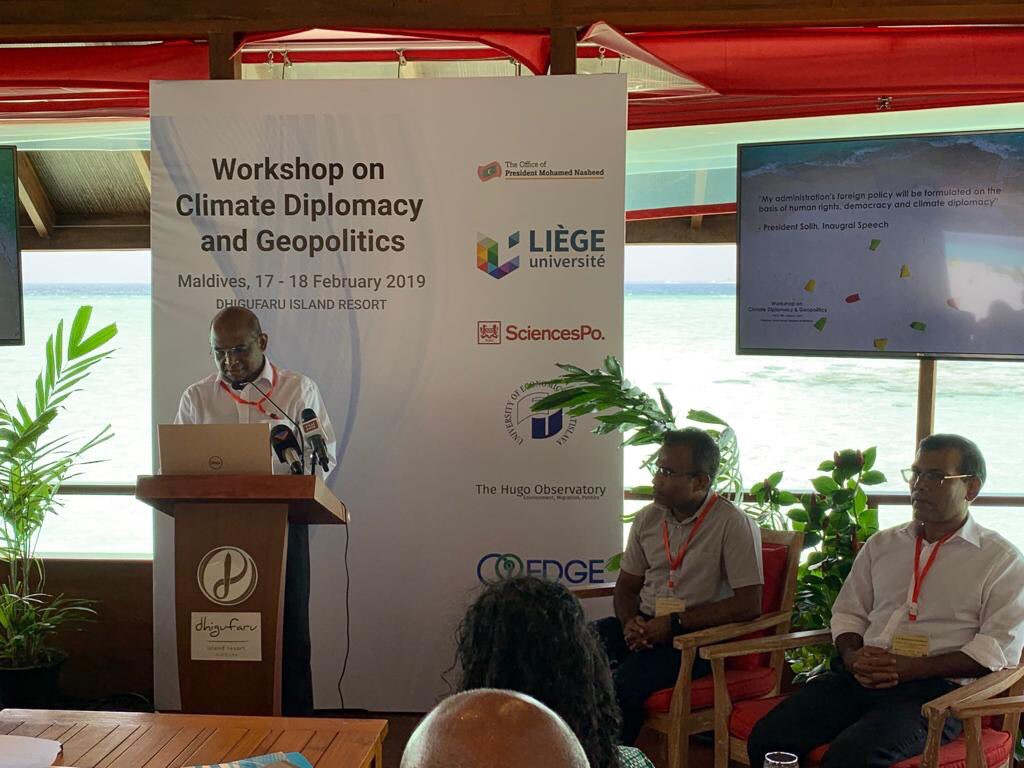
Foreign Minister Shahid at the Workshop on Climate Diplomacy and Geopolitics
Foreign Minister Abdulla Shahid has said that multilateralism, the principle of multiple countries pursuing a common goal, is important in addressing global challenges, such as climate change.
Minister Shahid said this at the Workshop on Climate Diplomacy and Geopolitics at Dhigufaru Island Resort.
In his speech, Minister Shahid said that he represented the Maldives on some of the key climate change negotiations in the 1980s and early 1990s, that had resulted in the United Nations Framework Convention on Climate Change (UNFCCC).
Highlighting that, at the time, the Maldives was beginning to participate in international politics on issues relating to climate change, Minister Shahid said that one of the country’s early initiatives were the convening of the first ever small states conference in the Maldives in November 1989 to discuss the phenomena of global warming and sea level rise, which helped to galvanise the small states around these issues and eventually formed the Alliance of Small Island States (AOSIS) as a negotiating group to promote the interests of the world’s most vulnerable states.
He said that small states were at a disadvantage in the negotiations because they were small and lacked experience in diplomacy and the material power to exert influence. These shortcomings were visible in every delegation or group in the negotiations, he said, because, traditional diplomacy was not designed to deal with issues such as climate change.
He said that traditional diplomacy analyses negotiations in terms of what one’s own country will get in return to what it will give in and the experts in climate negotiations realised that the phenomena that they wish to deal with does not recognise borders, territories, sovereignties, or even national identities.
“Climate change requires us to come up with new lexicons and new concepts that can capture the nuances of nature. It requires us to recalibrate diplomacy that can foster multilateralism, not just as a methodology, but as a strategy. This year will mark one hundred years since multilateralism emerged as an important principle in addressing global challenges. The magic formula in multilateralism is that while some countries get a better deal than others, no country is worse off, than they were before.”
Minister Shahid said that since not everyone understands that reality, diplomacy has produced some of the most spectacular failures in climate negotiations, such as the Copenhagen negotiations in 2009, and some of the most iconic successes, such as the Paris Agreement in 2015.
He said that the Maldives has always been highlighting the dangers of climate change and the need to forge partnerships to find solutions, which Mohamed Nasheed showed when, as president, he held the underwater cabinet meeting in 2009.
He said that the Maldives will continue its activism in global climate diplomacy and that President Ibrahim Mohamed Solih has identified climate change as one of the key foreign policy issues for his government, which will forge new partnership that will foster consensus on key issues, such as reducing the global temperature to 1.5°C.
He also said that climate justice, and compensations on loss and damage, have to be recognised as key principles and that the Maldives requires significant investments to adapt climate change, which needs to remain the key strategy.
“Climate change requires us, the diplomats, to think, not just outside the box; we have to, in fact, think without a box. It makes one to realise, that the very human instincts of survival is also shared by the entire humanity. The Maldives will be the partner in fostering global consensus on actions to stop and reverse the runaway climate change. The national interests of the Maldives on this issue are the interests of the entire humanity.”

